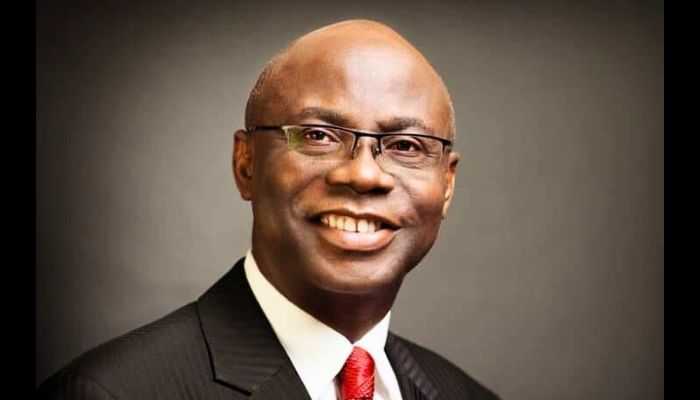Tunde Bakare shuns pressure to join ADC, calls for unity in Nigeria’s political space
Tunde Bakare, founder of the Citadel Global Community Church and a prominent voice in Nigeria’s political discourse, has once again stirred conversations with his refusal to bow to pressure from political heavyweights urging him to join the African Democratic Congress (ADC). Speaking at the maiden edition of the Citadel School of Governance Dialogue Series in Lagos, Bakare made it clear that his political convictions remain rooted in principle, not party persuasion.
The event, themed “Nigeria at 65: Historical Reflections, Futuristic Projection”, drew leaders, scholars, and civic participants who came to discuss the country’s democratic journey and what lies ahead. But the conversation took a political turn when Bakare revealed that several influential figures had approached him to align with the ADC, a party many see as positioning itself as an alternative to the ruling All Progressives Congress (APC).
According to Bakare, the pressure has been both persistent and personal. “There has been a lot of pressure on me from who is who to join ADC,” he said. “They come to my home. Even while I was abroad, the hierarchy of that party kept calling, saying they needed my voice.”
He disclosed that the persuasion extended beyond casual invitations, noting that a former governor and a former minister from the South-West were among those urging him to make the move. In a political climate where defections have become a common survival strategy, Bakare’s revelation underscores how political parties continue to court prominent individuals to bolster their credibility ahead of the next electoral cycle.
Read also: Tinubu receives Tunde Bakare in Lagos
However, Bakare’s response was firm. “I am not going to take part in ADC,” he declared. “The last time I knew about ADC was about a plane that crashed. I wish them well, because we need a robust opposition. But you don’t birth a child called APC and then try to kill it yourself. We are not going to have another Awolowo Akintola crisis in the South-West.”
His reference to the historical rivalry between Chief Obafemi Awolowo and Chief Samuel Akintola, which fractured the political landscape of the South-West in the 1960s, drew attention to what he perceives as a potential repeat of political division within the region. For Bakare, unity, not factional competition, remains the antidote to the region’s and by extension, the nation’s political instability.
The cleric’s statement also sheds light on the fragile state of political alliances within Nigeria’s democratic system. With the 2027 elections drawing nearer, several parties have intensified efforts to recruit new members, especially from among public figures who command credibility and public trust. Bakare’s name, long associated with advocacy for good governance, continues to hold sway both in religious and political circles.
While many recall his previous involvement in politics—particularly his role as running mate to President Muhammadu Buhari under the Congress for Progressive Change (CPC) in 2011 Bakare has since positioned himself as a moral voice in governance rather than an active partisan player. His refusal to join ADC appears to reinforce this stance.
Political analysts have interpreted his comment as a subtle message to political actors in the South-West who may be plotting new alignments. By invoking the historical tension between Awolowo and Akintola, Bakare is cautioning against repeating the mistakes of the past where personal ambition and rivalry undermined collective progress.
Some also see Bakare’s statement as a reminder of the importance of ideological commitment in politics, something that has become increasingly rare in Nigeria’s shifting political terrain. “Bakare is not just rejecting ADC; he is rejecting the culture of opportunism that dominates our politics,” said a political commentator at the event.
The cleric’s decision to stay away from the ADC does not, however, mean he is retreating from political engagement. His comments during the dialogue series suggest that he remains deeply invested in Nigeria’s future. He spoke passionately about the need for ethical leadership, national unity, and youth-driven innovation as key factors that could shape Nigeria’s next phase of development.
For Bakare, politics is not merely about party membership but about purpose. He emphasised that true leadership requires consistency and conviction, not the constant shifting of allegiances. “We must rise above political manipulation,” he said. “If our goal is truly to rebuild this nation, then we must focus on building character before seeking power.”
Observers note that Bakare’s position reflects a growing sentiment among Nigerians who are disillusioned by endless defections and recycled political faces. His refusal to join ADC may resonate with citizens who view integrity as a rare commodity in the country’s leadership.
Nonetheless, his remarks may not sit well with some of his political peers who see party expansion as essential to challenging the dominance of the ruling APC. The ADC, for instance, has been trying to reinvent itself as a home for reform-minded politicians and technocrats. Bakare’s rejection could therefore be a symbolic setback for those seeking to use his influence to strengthen the party’s image.
Still, his call for a “robust opposition” reflects an understanding of the need for political balance in a democracy. Bakare acknowledged that Nigeria’s system benefits from competing voices and ideas—but insisted that such competition must not come at the expense of unity.

